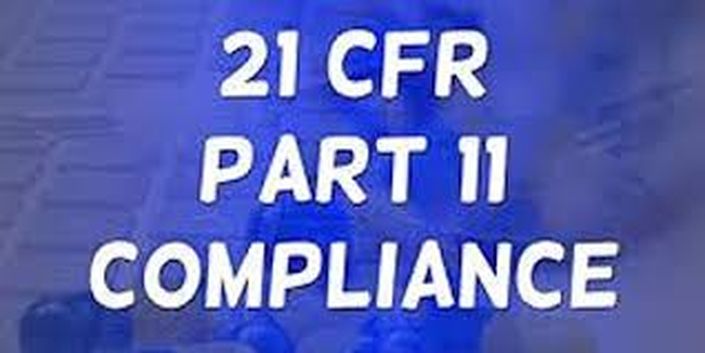Description
There are very specific limitations that arise when using ER/ES capability, such as the elimination of print capability to prevent users from making decisions based on a paper record as opposed to the electronic record.
It also requires very specific identification of users that ensures the person signing the record is the same person whose credentials are being entered and verified by the system. The rule for changing passwords must be rigorously adhered to and the passwords must be kept secure.
It is critical that the system specify the exact meaning of the signature. It may be that the person conducted the work, recorded the result, reviewed the result, or approved the result.
A person may simply be attesting to the fact that they reviewed the work and the signatures, and there was appropriate segregation of duties (i.e., the person recording the result is not the same as either the person reviewing or the person giving final approval).
A company must have specific policies and procedures in place that explicitly state responsibilities and provide guidance for implementing and using ER/ES capability. These must clarify the 21 CFR Part 11 regulation and provide insight as to the way the company interprets its responsibility for meeting it.
As FDA continues to evolve and change due to the many factors that influence the regulatory environment, companies must be able to adapt. New technologies will continue to emerge that will change the way companies do business.
While many of these are intended to streamline operations, reducing time and resources, some unintentionally result in added layers of oversight that encumber a computer system validation program and require more time and resources, making the technology unattractive from a cost-benefit perspective.
This webinar will cover the key aspects of complying with 21 CFR Part 11 in both validating systems and maintaining them in a validated state throughout their entire life cycle.
Why Should You Attend
This webinar will help you understand in detail the application of FDA’s 21 CFR Part 11 guidance on electronic records/electronic signatures (ER/ES) for computer systems subject to FDA regulations.
This is critical in order to develop the appropriate validation strategy and achieve the thoroughness required to prove that a system does what it purports to do. It also ensures that a system is maintained in a validated state throughout its entire life cycle, from conception through retirement.
ER/ES capability can vary, and the approach should be based on the specific case and the risk of failing to meet the guidance associated with it.
Webinar Takeaway
- Learn about 21 CFR Part 11 and what is required for compliance
- Learn about industry best practices related to compliance and computer system validation
- Understand strategies for reducing the cost and complexity of compliance with FDA regulations, including 21 CFR Part 11
- Understand how the System Development Life Cycle (SDLC) methodology supports the computer system validation process
- Understand how to effectively document the process of computer system validation, and maintain current information about the various systems in your organization and how they have been maintained in a validated state
- Learn about Data Governance and Data Integrity, including the FDA’s Guidance issued in late 2018
- Understand what it takes to audit a vendor of hardware, software, components, and services
- Learn how to gain information about trends in validation, as the industry progresses and new best practices emerge
- Understand some of the industry best practices to apply when following the SDLC methodology
- Q&A
Who Will Benefit
- Information Technology (IT) Analysts
- IT Developers
- IT Support Staff
- QC/QA Managers and Analysts
- Clinical Data Managers and Scientists
- Compliance Managers and Auditors
- Lab Managers and Analysts
- Computer System Validation Specialists
- GMP Training Specialists
- Business Stakeholders using Computer Systems regulated by FDA
- Regulatory Affairs Personnel
- Consultants in the Life Sciences and Tobacco Industries
- Interns working at the companies listed above
- College students attending schools and studying computer system validation, regulatory affairs/matters (related to FDA), or any other discipline that involves adherence to FDA regulatory requirements

Faculty Carolyn Troiano
Consulting/Training in FDA Compliance for Validation, 21 CFR Part 11 (Electronic Records/Signatures) and Data Integrity
Carolyn Troiano has more than 40 years of experience in computer system validation and compliance in the pharmaceutical, medical device, tobacco and other FDA-regulated industries. She is currently an independent consultant, advising companies on computer system validation and large-scale IT system implementation projects.




